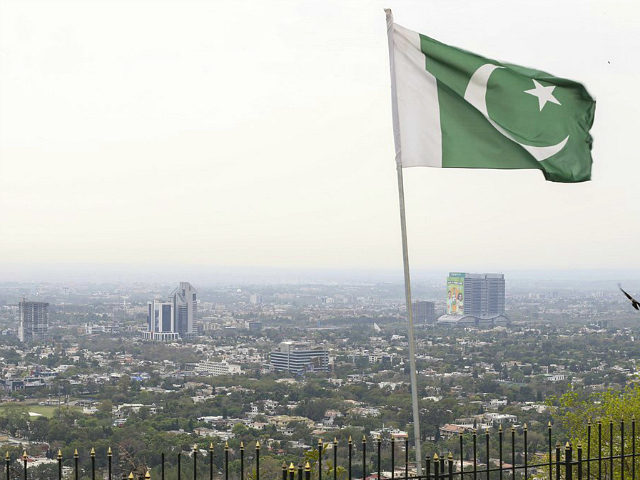WASHINGTON, DC — Pakistan is beginning to combat terrorist havens on its soil after years of refusing to do so, a top U.S. commander told lawmakers on Thursday as Islamabad intensified its efforts against banned domestic Islamic extremist groups, seizing 182 religious schools and arresting more than 100 suspected terrorists.
Gen. Joseph Votel, the head of U.S. Central Command (CENTCOM) charged with American military operations in the Middle East and South Asia, indicated that U.S. President Donald Trump’s decision to suspend security aid to Islamabad over its reluctance to take action against terrorist groups planning and carrying out attacks in Afghanistan from Pakistani soil is starting to bear fruit.
His comments came during a House Armed Services Committee hearing focused on U.S. military activities against Islamic terrorists.
Until recently, Pakistan had refused to stop harboring terrorists — including the Afghan Taliban and its Haqqani Network allies — despite the Trump administration’s move in early 2018 to cancel hundreds of millions of dollars in aid to Islamabad.
Votel also suggested that President Trump has also succeeded in pressuring Pakistan to assist the United States in convincing the Taliban to engage in what the general described as unprecedented peace negotiations to end the more than 17-year-old war.
On Thursday, Gen. Votel told the House Armed Services Committee:
We have had some success with Pakistan, they’ve been more helpful in terms of bringing the Taliban to the [peace negotiating] table. As we have requested [from] them, we have seen instances where they have taken action against the safe haven areas. Clearly, there is more they can do and we have encouraged them to continue to do that, but we have seen some positive indications.
Just earlier this year, Gen. Votel and intelligence officials warned that Pakistan continued to refuse to take action against terrorist groups known to kill and maim American troops and their allies in neighboring Afghanistan.
Gen. Votel’s comments about Pakistan came on the same day that Islamabad announced that it had seized 182 religious schools and detained 121 people as part of an intensified crackdown against domestic Islamic extremist groups that began this week.
Referring to Islamic religious schools known as madrassas in a statement issued Thursday, Pakistan’s interior ministry noted, “Provincial governments have taken in their control management and administration of 182 seminaries,” Reuters reports.
Islamic extremist groups are known to use madrassas to indoctrinate and recruit the next generation of jihadis.
“What to do with madrasas is a thorny issue in Pakistan, a deeply conservative Muslim nation where religious schools are often blamed for [the] radicalization of youngsters but are the only education available to millions of poor children,” Reuters notes.
Besides the religious schools, Islamabad also took over other institutions from different banned Islamic extremist groups, “including 34 schools or colleges, 163 dispensaries, 184 ambulances, five hospitals, and eight offices,” the news outlet adds.
Referring to the crackdown, Reuters reports, “The move represents Pakistan’s biggest move against banned organizations in years and appears to be targeting Islamic welfare organizations that the United States says are a front for militant activities.”
Islamabad’s crackdown this week came in the wake of heightened tensions not seen in decades between India and Pakistan over the disputed Muslim-majority region of Kashmir, where Islamabad, its ally Beijing, and mutual rival New Delhi all have competing territorial claims.
Last week, Pakistan and India both carried out aerial bombing operations in Kashmir, even engaging in a brief dogfight that triggered fears of an all-out war between the two nuclear-armed rivals.
India and Pakistan have engaged in two major wars and a brief conflict over Kashmir — 1947, 1965, 1999. Despite a 2003 ceasefire, the two countries have repeatedly clashed along the border known as the Line of Control (LOC) that separates the Kashmir regions controlled by India and Pakistan.
After accusing Islamabad of being behind a February 14 terrorist attack that left more than 40 security forces dead in New Delhi-administered Kashmir, India targeted what it claimed to be a training camp manned by the Pakistan-based group Jaish-e-Mohammad (JeM) that claimed responsibility for the assault. Pakistan denied any involvement in the JeM attack, arguing that Islamabad does not harbor any terrorist groups.
“Pakistani officials say the crackdown [that began this week] is part of a long-planned drive and not a response to Indian anger over what New Delhi calls Islamabad’s failure to rein in militant groups operating on Pakistani soil,” Reuters notes.

COMMENTS
Please let us know if you're having issues with commenting.